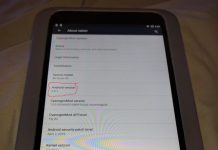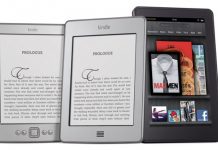 That’s part of the thrust of an article in The Philadelphia Inquirer, by John Timpane. Here’s a snippet:
That’s part of the thrust of an article in The Philadelphia Inquirer, by John Timpane. Here’s a snippet:
Makers of e-books are stingy with their numbers, and industry watchdogs disagree, but some say a large proportion of early e-book owners – up to 66 percent in some surveys – are older than 40, with a “sweet spot” in the 35-to-54 range.
Smythe of Sony said that “as of now, the whole e-book industry was trending older,” and Tony Astarita, vice president of digital products at Barnes & Noble, said that “our initial adoption was skewed to heavy readers and an older demographic.” Astarita expects, however, that as e-book prices moderate, “we’re going to see a more general audience.”
Risa Becker, vice president of research operations for GfK MRI, reports on a survey released in May: “We’re not finding the more-mature trend, and only a very slight tendency for men to own e-readers more than women.” Yet for certain readers, such as the Kindle, early users are more frequently female. Smythe said, “We’re seeing a greater percentage of women than men; a lot of women are taking to this.”
Becker said, “Women were 11 percent more likely than men to say they read an e-book, and men were 20 percent more likely to have read a magazine and 19 percent more likely to have read a newspaper.”
E-book users, Becker said, tend to earn more than $100,000 a year, be college-educated, and be very Web and social-media savvy: “These people do everything on the Web. They spend more than 20 hours a week on it.”


































Haha,…does not come as a surprise if you take a look at this thread here: http://www.mobileread.com/forums/showthread.php?t=21902
Wow, I wish I made $100,000 a year.
Surpisingly, I meet the criteria of the above article, but am not eReading these days.
It’s not my choice. It’s the choice of the eBook and eReader industries.
An early adopter of eBooks for six years I have revelled in my eReading habit. With a succession of multi-use Windows Mobile PDA’s I have purchased, and read more than 700 books. Now, suddenly, eReading has become all about the eReader, not the books.
Since April 1st this year I have been unable to purchase most eBooks. Why? I really would like to know.
I suspect it has something to do with electronic politics. Overnight, Adobe Digital Edition has become the eReading software du jour. That’s all well and fine except it has not developed a version for Windows Mobile devices.
I have tried contacting Windows Mobile and Adobe in regard to their plans concerning each other. I liken the experience to beating my head against a wall of case-hardened steel.
Does anyone at TeleRead have an explanation beyond Apple v. Windows?
Nancy: I guess you somehow missed the past 5+ months of uproar over “the Agency Model”.
To summarize, Apple didn’t want to compete with Amazon on e-book prices when the iPad came out. Apple talked 5 of the ‘Big 6’ trade publishers into declaring themselves as being the sellers of e-books, with the booksellers being agents who get a 30% commission. The publishers now set a minimum price, and the booksellers cannot discount from that price in any way. This took effect April 1 (April 3 for a couple of the publishers).
Along the way, the publishers forgot about all of the small e-book sellers (anyone other than Amazon, Barnes & Noble, Apple, Sony, and Kobo/Borders). The smaller outlets all get their e-books through wholesale distributors. The Agency Model didn’t provide any commission to the distributors. Funny thing: the distributors quit distributing the e-books from those five publishers to the smaller e-book stores.
See the comment from Bob LiVolsi in this article: “Publishers overlooked the wholesale channel and they acknowledge it.”
As of now, three months later, only four e-book stores in the US and Canada carry titles from all of the ‘Big 6’ trade publishers: Amazon, Barnes & Noble, Sony, and Kobo/Borders. Apple has chosen not to carry Random House because RH wouldn’t go along with the “Agency Model”. Macmillan titles aren’t available through any of the other e-book stores, at least from a spot check I made last week. Hachette titles aren’t either, except from eBooks.com.
Books-a-Million opened their e-book store last week. They don’t have any Macmillan, Hachette, or Penguin titles.
So it’s not Apple vs. Windows. It’s Apple vs. all of the other e-book sellers, and especially Apple vs. Amazon.